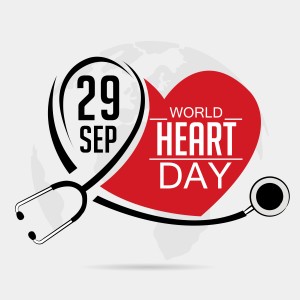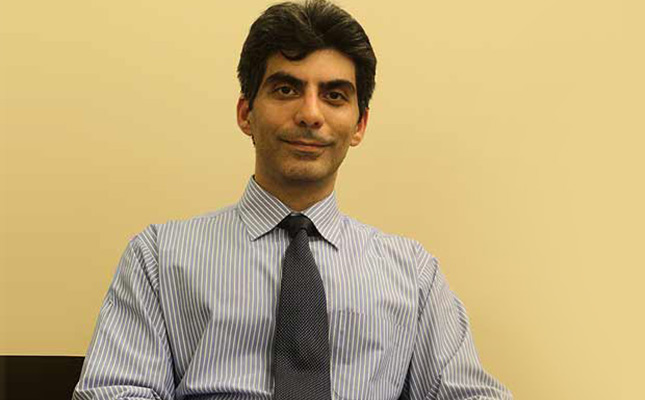
Death rates due to heart diseases continue to rise in India, claiming 1.7 million lives in 2016, as per the Global Burden of Disease report released exactly a year ago in September 2017. Recently, a national daily in India published a report stating that deaths in India due to heart disease have risen by 36% over the past 26 years. GOQii India fit report released early this year finds that there has been a rise in the number of lifestyle diseases among Indians. Of these, an increased number of people have high cholesterol with data showing an increase from 9.4% in 2016 to 10.1% in 2017.
Given the above statistics, Heart health is something that needs immediate attention. Today is World Heart Day and let us all be responsible and consciously make simple changes to our life to improve our heart health. In this blog, we have jotted down few simple lifestyle tweaks that you can implement in your life if you already have not done so.
- Love your couch a little lesser:
After a hectic workday at your desk, we love to get cosy on the couch, even though it isn’t the best thing to do. Did you know that people working desk jobs are more prone to contracting a heart disease than the others? You might begin to see the connection here. Yes, being physically active has a big impact on achieving a healthy heart. Start slow, even a short walk after every meal will help you in many ways. Along with improved blood circulation, factors like obesity and blood pressure can also be controlled by giving your body the exertion it craves.
2. Toss the butt for good:
Kicking the butt is always tougher than picking up smoking. Smokers who try to quit, regress many times before leaving it completely and this is totally natural. But the determination to come back on a healthy track is what really matters. If you think you can’t do it alone, try counselling or other methods like nicotine patches, nicotine gum etc. Forget heart health, if you want to be healthy in general, the time has come to say goodbye to your cigarettes.
3. Stop stressing out:
We totally understand why you think it is impossible, considering our busy schedules and the endless deadlines which are caught in a loop. The problem is that high amounts of stress cause strain on the heart due to the release of adrenaline, making the heart beat faster and also narrowing your arteries. It also harms your heart indirectly by contributing to factors like blood pressure, cholesterol and obesity. To keep your stress levels in check, choose a program such as yoga, meditation etc. that’s convenient and suitable for you and stop stress from overpowering you.
4. Keep the weight under control:
Overweight and underweight conditions like obesity or anorexia attract heart diseases easily. So calculate your Body Mass Index (BMI) to check for the category you fall in and if you do not fall under the normal category, you need to gain or reduce some weight. More than being healthy, a change like this will boost your self-confidence and help you feel more comfortable in your own skin.
5. Eat Healthy To Stay Healthy:
This is one of the most important steps towards achieving a healthy heart. At the end of the day, it is what we eat that constitutes the state of our body. Most importantly, stay clear of saturated fats and oil as this increases the level of bad cholesterol in the blood, which is extremely bad for your heart. Foods like red meat and processed food with high sugar and corn syrup content are all to be frowned upon, to achieve a healthy heart. Eat a lot of fruits, vegetables and lean protein foods like skinless chicken and fish (not fried). This not only helps in maintaining a healthy heart but also increases your quality of life.
- Alcohol Consumption:
In the book “The Heart Truth” by Dr Aashish Contractor, it is stated that alcohol may be beneficial in raising good cholesterol (HDL) as well as other anti-oxidant properties when consumed moderately. If you are someone who hasn’t consumed alcohol before, please don’t start now thinking it’s good for your heart! But if you are someone who enjoys a drink or two, then do so in moderation. Dr Aashish personally defines moderate as one or two drinks, three days per week and the optimum amount of liquor to be 45ml a drink. It is important to remember that excessive consumption can cause harm and damage your heart and other organs. So drink responsibly folks!
- Stay positive, Stay Motivated:
Pessimism lurks in each and every one of us. Sometimes, we decide to give up not realising how close we have come to our goals. When maintaining a healthy heart or being healthy in general, it is very important to know what you want and be clear about it. Self-doubting is natural but steering through that phase keeping a positive mind towards it is difficult. Don’t be another brick in the wall, be the one to achieve and prove it is possible. GOQii wishes the best for all of you on this World Heart Day!



 Heart Disease is the leading cause of death among men and women worldwide and even in India. I have found that even among people who have suffered a heart disease, the lack of knowledge about the disease is astounding. With the amount of information we have today, I would expect people to be more aware but they aren’t. Funnily enough, there is lots of alternative information floating around and what’s app just amplifies it. Which is why I called the book- ‘The Heart Truth’ and decided let’s stick to facts and put it out. Secondly, I wanted to share a lot of real-life examples in order to show that after suffering a heart disease life does not end in fact in my opinion it begins. One starts a new chapter in life. My philosophy is one should get better than before and not just get back to where they were before. Through these real-life examples, many of whom have gone on to run marathons or climb mountains. One of them even had a turnaround just 200-300 meters from Mt Everest Summit only because of bad weather. Through the book, the idea was to showcase these real-life examples and inspire people to turn their lives and let heart disease be a new beginning.
Heart Disease is the leading cause of death among men and women worldwide and even in India. I have found that even among people who have suffered a heart disease, the lack of knowledge about the disease is astounding. With the amount of information we have today, I would expect people to be more aware but they aren’t. Funnily enough, there is lots of alternative information floating around and what’s app just amplifies it. Which is why I called the book- ‘The Heart Truth’ and decided let’s stick to facts and put it out. Secondly, I wanted to share a lot of real-life examples in order to show that after suffering a heart disease life does not end in fact in my opinion it begins. One starts a new chapter in life. My philosophy is one should get better than before and not just get back to where they were before. Through these real-life examples, many of whom have gone on to run marathons or climb mountains. One of them even had a turnaround just 200-300 meters from Mt Everest Summit only because of bad weather. Through the book, the idea was to showcase these real-life examples and inspire people to turn their lives and let heart disease be a new beginning.


